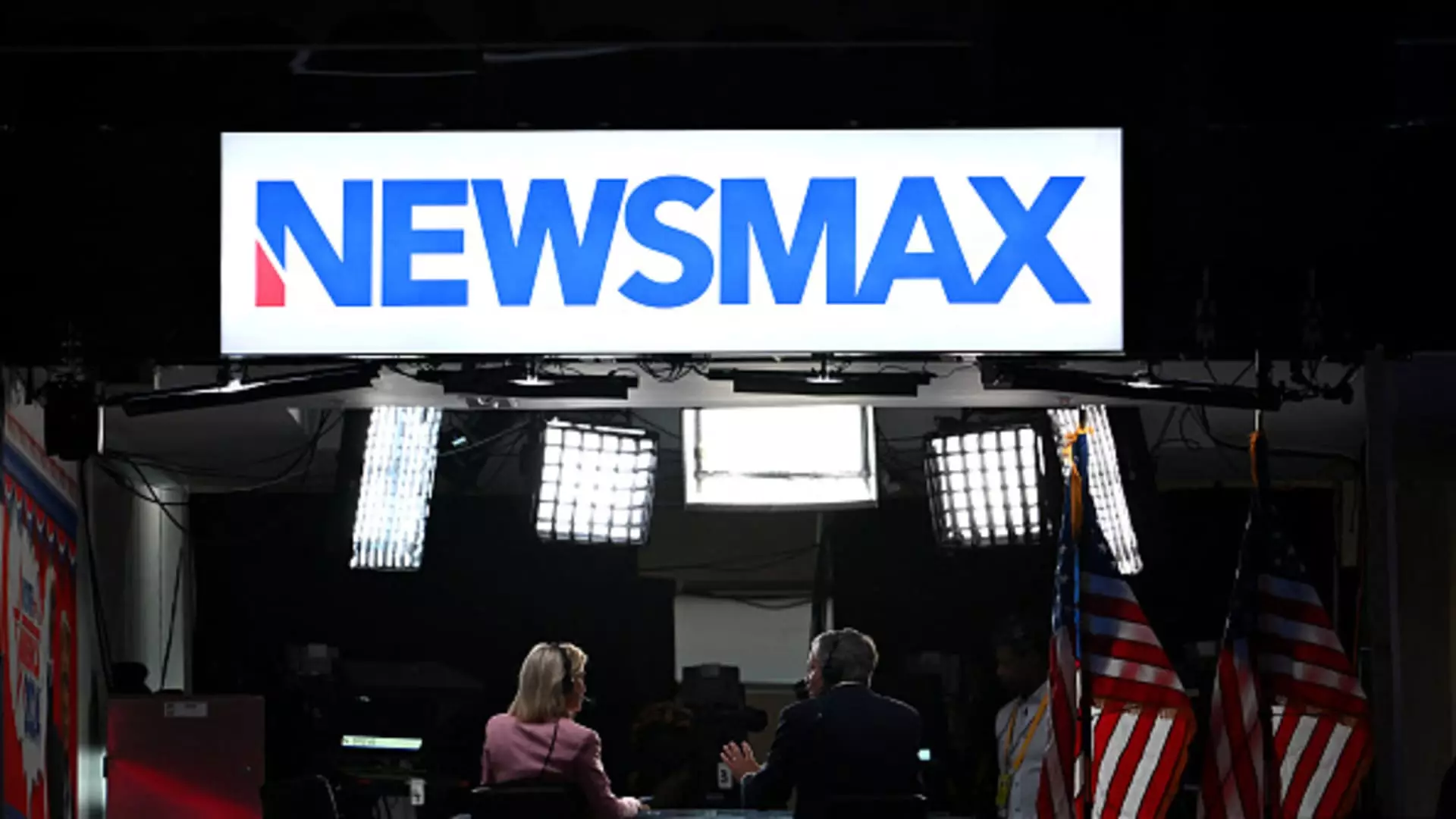The staggering $40 million settlement between Newsmax and Smartmatic speaks volumes about the ramifications of spreading misinformation in our modern political landscape. As media outlets scramble to capture audience attention, often at the expense of journalistic integrity, such monetary sums serve as a wake-up call about the moral and ethical responsibilities tied to broadcasting. This case highlights how a profit-driven media environment can become a breeding ground for fabricated narratives, directly influencing public perception and, ultimately, the democratic process itself.
Amplifying False Narratives
Newsmax’s perilous descent into dubious reporting took place in the wake of the 2020 U.S. presidential election, when claims of election rigging were rampant. The channel leveraged these baseless allegations to attract a surge of viewership, evidenced by its audience growing tenfold. This is not merely a story of sensationalism; it encapsulates a toxic cycle where viewer engagement supersedes factual reporting. When political figures such as Donald Trump echo these false assertions, the lines between truth and propaganda blur. Media companies like Newsmax appear to exploit this chaos, transforming sensational misinformation into profitable engagements.
The Dangers of Abusing the First Amendment
Newsmax couched its actions as an exercise of First Amendment rights, arguing it served merely to report on claims made by Trump and his supporters. However, the fundamental question arises: where does one draw the line between free speech and the irresponsible dissemination of harmful misinformation? By masking flawed reports as “news,” outlets undermine the very foundations of democratic discourse. If media companies operate under the premise that anything reported can somehow be justified as newsworthy, the public loses trust, and the sanctity of journalistic integrity is forfeited.
A Call for Accountability
As the settlement with Smartmatic illustrates, the consequences of defamation are no longer theoretical. With legal ramifications now at the forefront, it begs a crucial inquiry: will this settlement effect a genuine change in reporting standards among news organizations? The prevalence of misinformation is fueled not only by sensationalist reporting but also by a lack of accountability. The consequences of broadcasting falsehood hit harder when the staggering sums like $40 million are involved. Perhaps, these settlements will galvanize a shift in focus towards fact-checking and responsible journalism.
Implications for Future Coverage
Moreover, this episode isn’t isolated; it extends to broader ramifications in the media industry. The settlements between other platforms, like Fox News and Dominion Voting Systems, showcase a troubling trend where profit motives overshadow journalistic ethics. The financial stakes are high, and as more media organizations face lawsuits, the squawking of false narratives may finally be dampened. Yet, without a genuine commitment to ethical reporting, future coverage risks being tainted by the same cavalier attitudes that led to these defamation lawsuits, perpetuating a cycle of misinformation rather than breaking it.
This case isn’t simply about one media outlet’s misdeeds; it is emblematic of a critical moment in American media where accountability must be enforced to safeguard democracy and inform the public accurately.



Leave a Reply